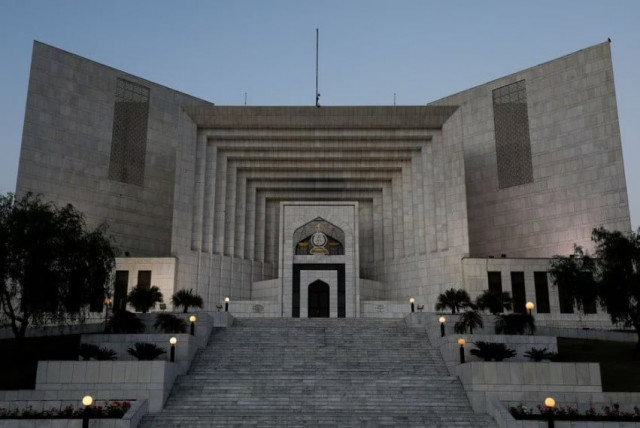Adjournment culture continues to plague judicial system
Lawyers routinely ask for postponement of proceedings due to unavailability for bizarre reasons or as delay tactic

Despite pending cases being in the millions, the adjournment culture which plagues the country’s district courts has continued unabated, robbing people of the right to speedy justice and further exacerbating the country’s inefficient judicial system crisis.
Recently, Senator Shahadat Awan, the Minister of State for Law and Justice told the National Assembly that close to 1.8 million cases are pending in courts across the country.
A large chunk of this pendency comes from the first forum of justice available to the populace that is district courts or trial courts, colloquially referred to as lower courts.
Senator Awan, while talking to The Express Tribune, opined that the mammoth pendency of cases exists because there is no monitoring or supervision by superior courts and nor do judges of superior courts have any interest in conducting annual inspections.
“A pendency in millions is nothing but the failure of our judiciary, which is busy fighting amongst themselves instead of working to address the problems of litigants, who have been waiting for justice for decades,” the Minister criticised.
Mariyam Taher Qayyum and Rabia Paracha, lawyers based in Islamabad, who have extensively researched about Pakistan’s adjournment culture, agree: “unwarranted adjournments, whether sought by lawyers or granted by courts, compound the woes of litigants and contribute to the insatiable caseload that exists in the country presently.”
Qayyum and Parach’s opinion and research on the matter is backed by the Supreme Court’s observations in a judgement from last year, in the case titled as Imran Ahmed Khan Niazi versus Mian Muhammad Shahbaz Sharif, in which Justice Syed Mansoor Ali Shah opines: “...although we are cognizant of the fact that the judges of the trial courts perform the onerous task of dispensing justice at the grassroots in the stressful and challenging conditions and in a difficult and demanding environment, the leniency shown on their part in the matter of accommodating unjustified requests for adjournment, even at the cost of disregarding the timelines provided in the relevant laws, is unwarranted.”
Justice Shah further says: “Orders granting repetitive adjournments with warnings of “last and final” and “absolute last and final'' opportunity become meaningless and shatter the confidence of the litigant public in the court orders and consequentially weaken the authority and fiat of the court. Toothless court is the worst form of injustice.”
Despite such a glaring indictment of the adjournment culture prevalent in the country’s lower courts by the country’s apex court, requests for adjournments remain a routine matter.
In this regard, Qaiser Imam, who is the President of the Islamabad Bar Association, opined, “adjournment culture is a behavioural issue on the part of lawyers.”
Imam, who also happens to be a former civil judge, further said that the only way to correct such lax behaviour towards the proceedings of the court was for courts to impose exemplary costs on those routinely seeking adjournments.
Whereas, Rana Intizar Hussain, President of the Lahore Bar Association, was of the view that just imposing costs would not lead to a seismic shift. “Our laws are ancient. The only way adjournment culture can be curbed is the Parliament stepping in to amend our ancient laws and imposing strict penalties on adjournment seekers,” said Hussain, further adding that the judiciary and lawyers also needed to come together to start a national level debate on how the prevalent adjournment culture shatters trust in the judicial system.
On the other hand, a senior civil judge, working at the district courts in the federal capital, who commented on the practice of seeking adjournments, on the condition of anonymity, opined that laws to curb the culture of delaying court proceedings already exist but needed to be implemented.
“Judges should strictly resort to the Costs of Litigation Act of 2017 to curb the adjournment culture. No adjournment should be granted without imposition of costs occasioned by the adjournment sought,” he said, further adding that no sufficient cause should mean no adjournment.
When asked why judges accepted adjournment requests like routine in the first place, the civil judge said that a lack of experience on the part of judges vis a vis case management results in them getting overburdened with caseload, which leads to entertaining adjournments.
“We should look into increasing the number of judges to meet the growing influx of cases. There should be a good case to judge ratio so that cases can be disposed of quickly,” he suggested.
Imam, concurring with the suggestion of increasing the number of judges to manage the extraordinary caseload, added, “associate counsels who work with seniors should also be encouraged.
We should do away with the culture of individualism and promote a firm culture, so that anyone in a firm can take up a case, instead of having to rely on senior counsel to appear before every court.”
Hussain agrees. “In light of the Judicial Policy of 2009, senior lawyers should train junior lawyers working under them, to represent them aptly in their absence, so that juniors do not rely on the famous excuse “senior counsel is engaged in another court, please adjourn the matter until their availability,” the President of the Lahore Bar remarked.



















COMMENTS
Comments are moderated and generally will be posted if they are on-topic and not abusive.
For more information, please see our Comments FAQ